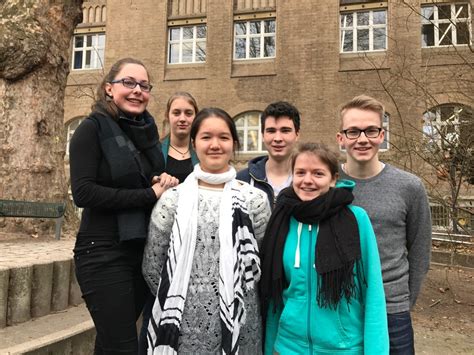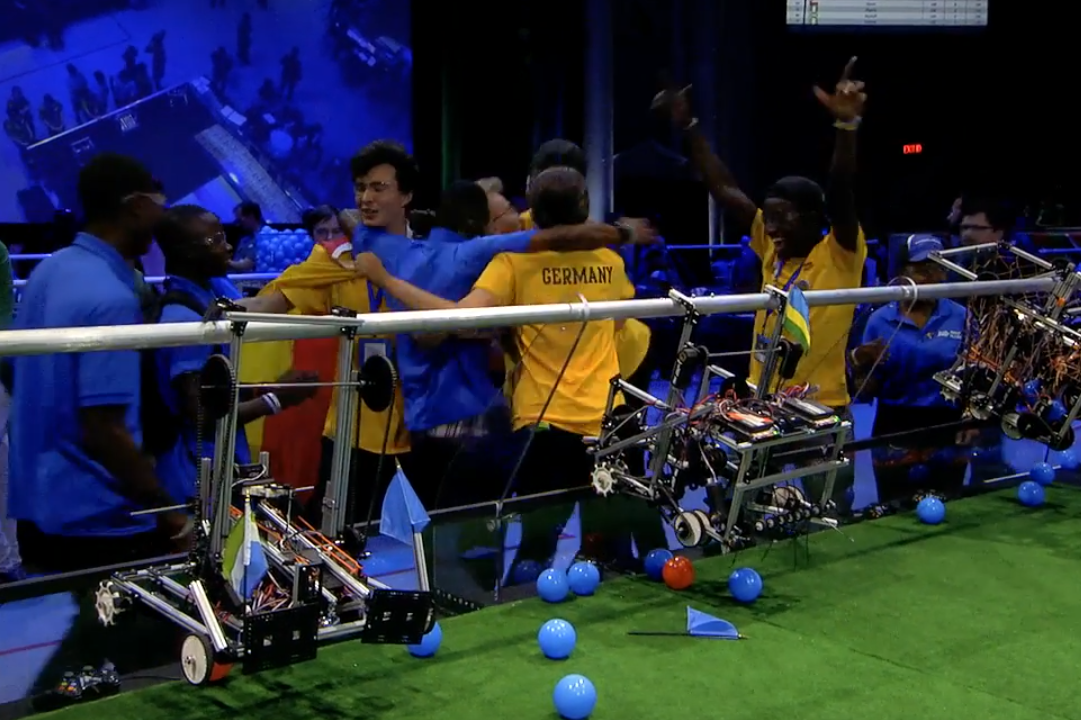World Robot Olympiad

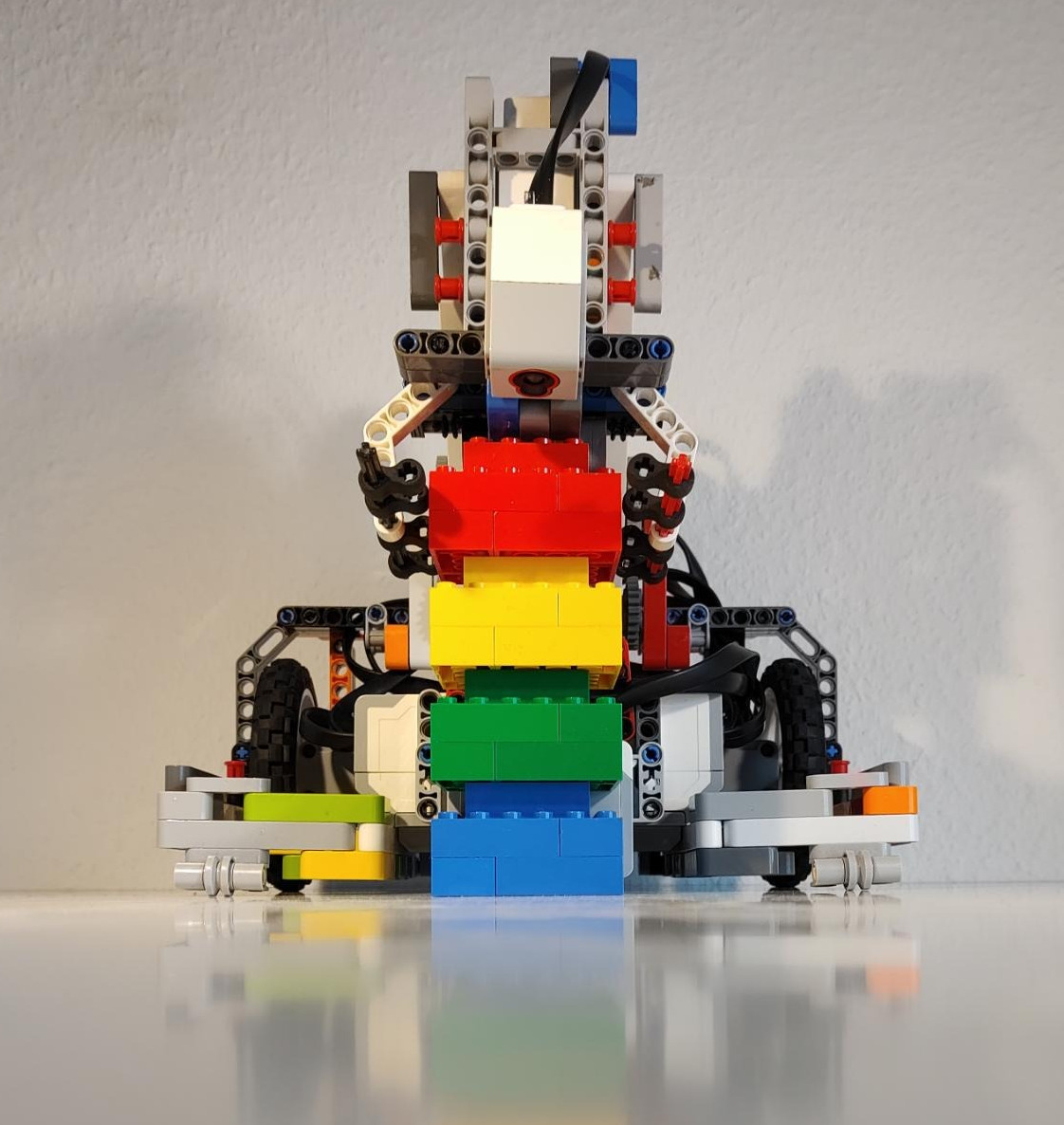
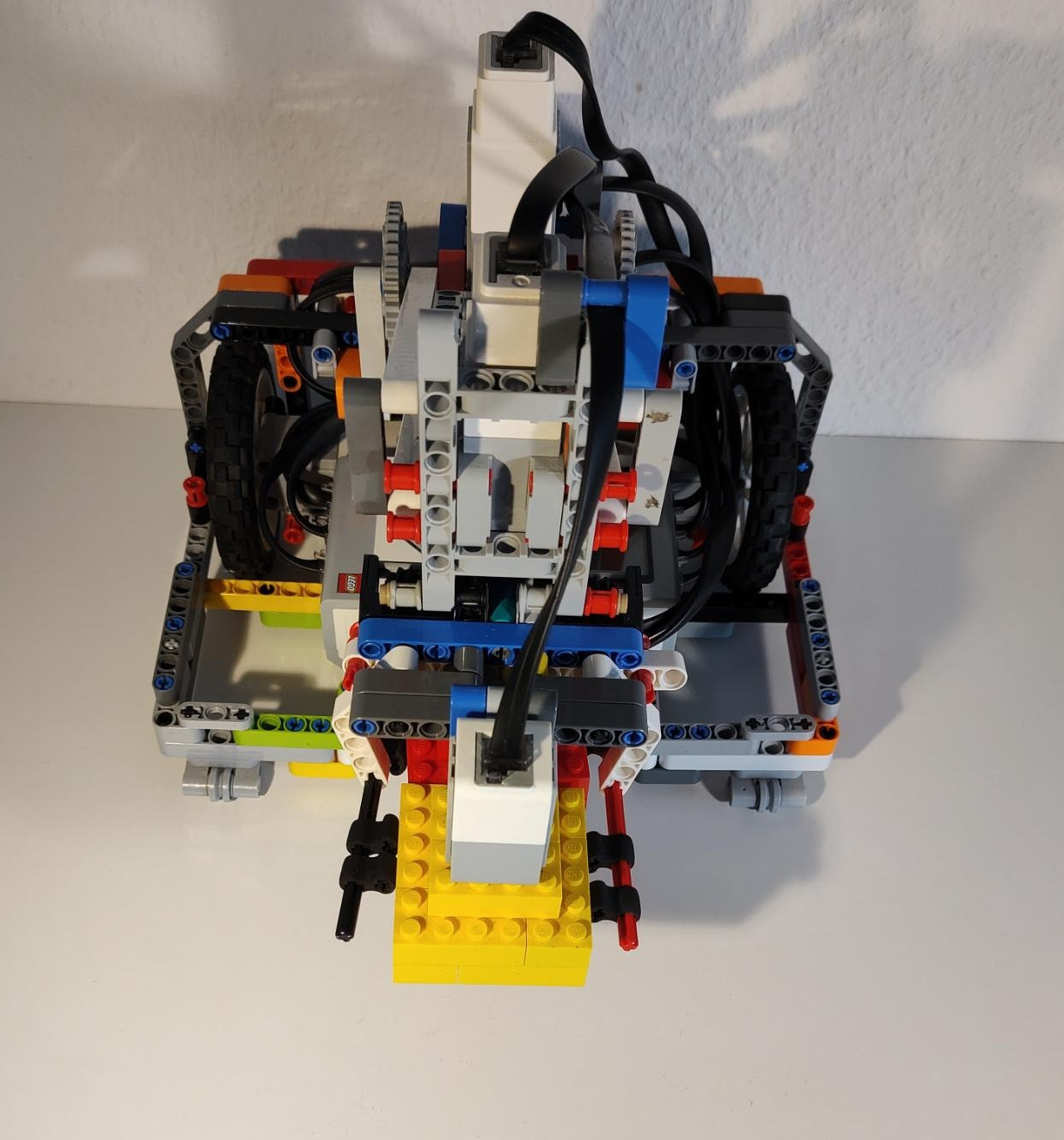
For children and young people from 8 to 19 years
The World Robot Olympiad is a Lego Mindstorms-based, international competition that distinguishes itself by the fact that there are no tasks apart from building and programming the robots. The WRO is divided into different categories and age groups; our school is currently only taking part in the Robomission category, in which a robot has to solve various tasks on a predefined field completely autonomously within 2 minutes. We currently have a total of 15 participating teams in the three age groups of this category and in the last two years one of our teams has made it to the world finals of the competition. As with all of these competitions, good team spirit and teamwork are a basic prerequisite for success.
Explore Science
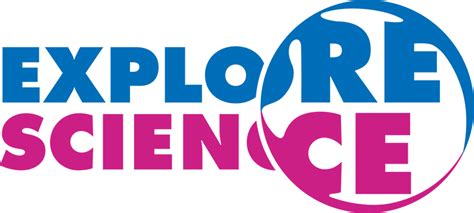
For everyone
The science experience days Explore Science (German website) take place every year in Mannheim, Bremen and the island of Mainau and offer hands-on activities, exhibitions and workshops as well as a competition in which a group of schoolchildren have to complete one of 4 to 6 tasks set in advance as well as possible. For example, one of the tasks the year before last was to sort 100 black and 100 white table tennis balls as quickly and accurately as possible within 3 minutes. We have been taking part in the competition for several years and since last year we have been an exhibitor in Mannheim ourselves with the FTC robots.
Competitions from FIRST:
For each age group there is a competition with different levels of difficulty and different requirements. However, the aim of each competition is not to win, but to acquire new skills and work together as a team.
FIRST LEGO League
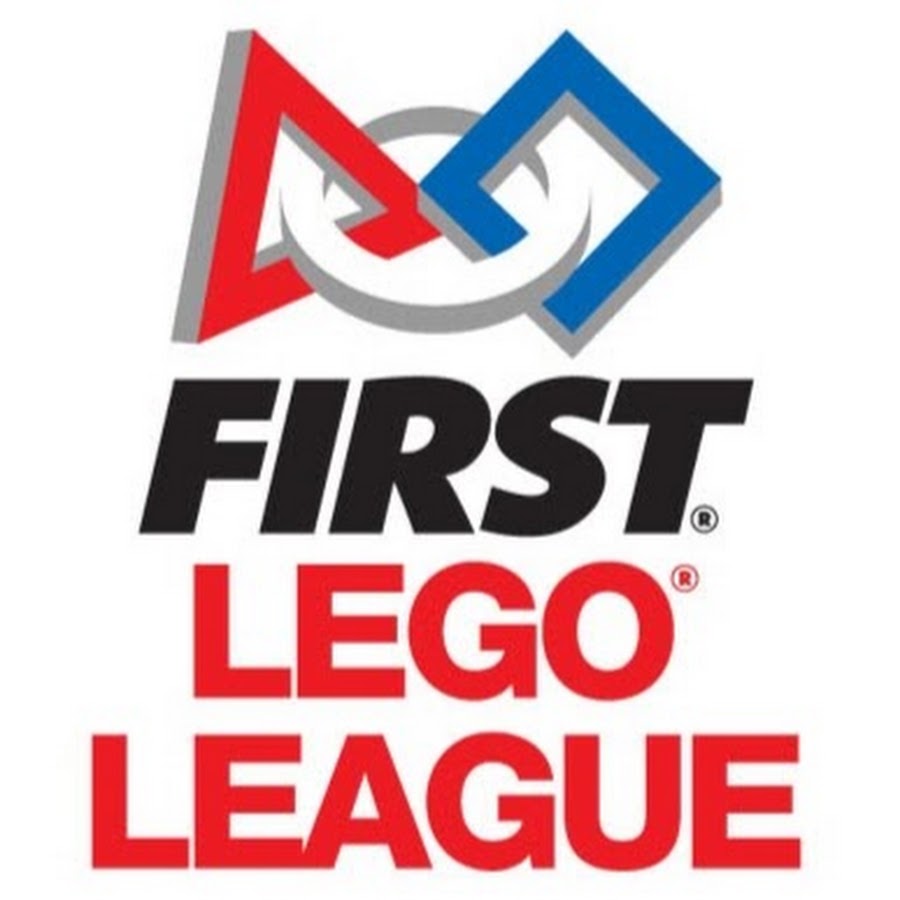
For children and young people aged 4 to 16
The FIRST LEGO League is a worldwide robotics competition that gets children and young people interested in technology and science. The competition revolves around a new theme each year and is divided into four categories: Robot Game, Robot Design, Research and Teamwork. The first two categories involve a self-built and self-programmed LEGO Mindstorms robot. This robot autonomously solves tasks on the playing field (Robot Game) and receives points for doing so. The robot may only be touched in the base in order to rebuild it or start another program. The programming and construction are also evaluated (Robot Design). Attention is paid to sensors, stability or modularity, for example. By working on a research presentation, the children learn about scientific or technical topics or real-life problems (research). This includes contact with external experts and solving a problem they have set themselves. In all these categories, the children learn to work independently, but above all in a team (teamwork). Cooperation is demonstrated on the day of the competition through a small task.
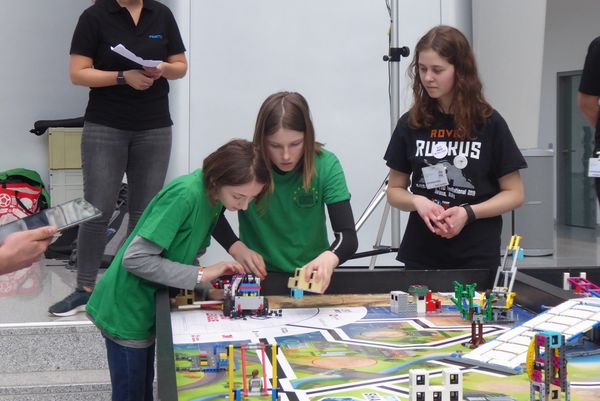
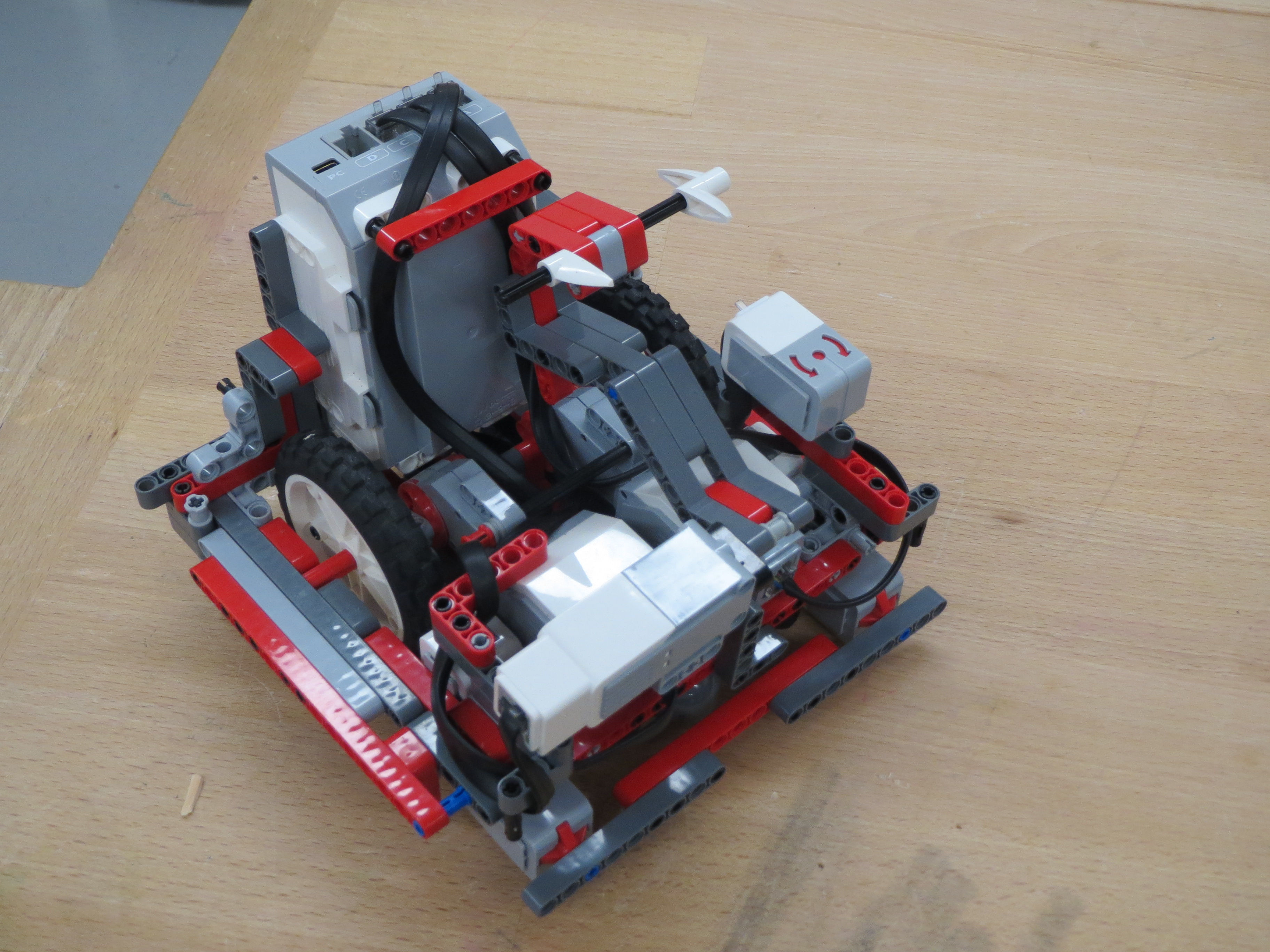
Since 2005, the robot club offered at our school participated at FIRST LEGO League. Since then, three to eight teams regularly compete in the regional competition in Esslingen. So far three teams have reached the semifinals in Middle Europe. At the beginning of each season we go to a three-day training camp together with the Ernst-Abbe-Gymnasium from Oberkochen. There the teams have enough time to work intensively on the robots and their research presentation. In between, various team tasks are also mastered.
FIRST Robotics Competition
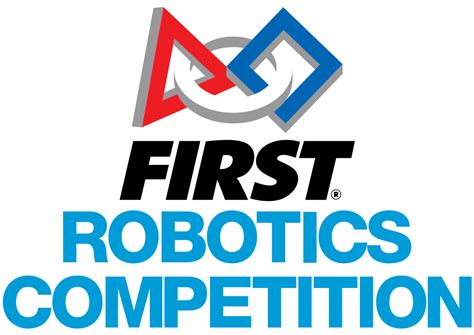
For students aged 15 to 18 years
The FIRST Robotics Competition is less well known and only spread in 33 countries. As with other FIRST competitions, the game and the required tasks change annually. These are mostly related to the topics of the other competitions. Each team builds a robot from a standard set of parts and other special parts, which the teams can either buy or produce themselves. The finished robot weighs up to 57 kg and consists mainly of metal and electronic components. It can drive both autonomously and controlled and plays with two alliance partners against three opponents. In addition to the on-field competitions, the teams and team members competed for awards that recognize entrepreneurship, creativity, engineering, industrial design, safety, control, media, quality, and illustration of the program's core values.
FIRST Global

FIRST Global or also FIRST Global Challenge are Olympic Games in robotics, which have been held in a different nation every year since the 2016/17 season. Each country can only send one team to the games. The theme is inspired by the greatest challenges facing our planet, including the 14 Grand Challenges of Engineering identified by the National Academy of Engineering. These challenges should be solved by the youth and later improve the future. On the pitch, the teams are divided into alliances and must cooperate to score points. FIRST Global should also encourage cooperation outside the competition. It is about coming together despite geographical, cultural and language barriers.
Recap of the FIRST Global Challenge 2017:
The FIRST Global Team of 2017 and 2018, which represented all of Germany, came from our school.
